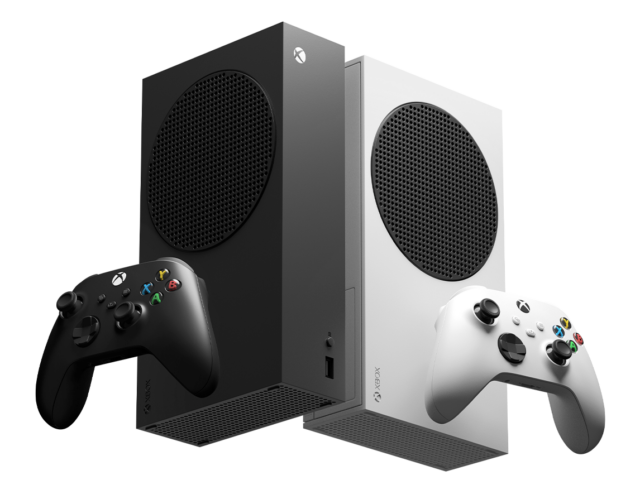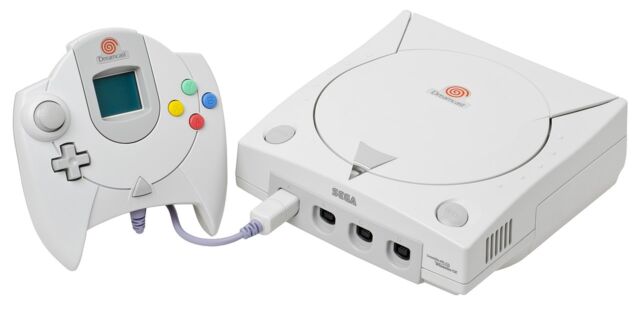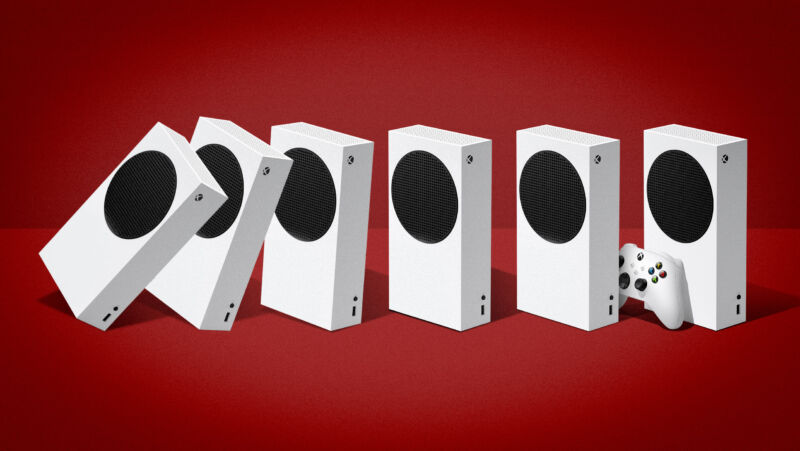It’s been a busy time in the Xbox rumor mill of late. Last weekend, the Verge reported that Microsoft was considering launching a version of Bethesda’s upcoming Indiana Jones and the Great Circle on PlayStation 5, alongside plans to port last year’s Hi-Fi Rush to other consoles. That same weekend, Xbox Eras published more lightly sourced rumors suggesting that prominent Xbox exclusive Starfield would be getting a PS5 port.
While Microsoft hasn’t directly commented on these reports, Xbox chief Phil Spencer wrote on social media that Microsoft is “planning a business update event for next week, where we look forward to sharing more details with you about our vision for the future of Xbox.”
The churning rumor mill has set off something of an existential crisis among some Xbox superfans, content creators, and influencers, who are worried that Microsoft is planning to essentially abandon their favored console. “Genuinely feel terrible for convincing my sister to get an Xbox instead of a PS5,” XboxYoda posted in a representative social media take. “Like I actually feel like I let her down… .”
“If you like being lied to that’s a you thing,” social media user XcloudTimdog posted. “I have a set of standards, that’s all. Cross them and, well, I respond.”
These and other more apocalyptic reactions might seem like hyperbolic whining from territorial console misanthropes. But they also have the germ of a point. Exclusive games have long been the primary way console makers argue for players to choose their console over the competition. If Microsoft effectively changes that argument in the middle of the current console generation, Xbox owners will have some legitimate reason to be upset.
A world without Xbox exclusives
To see why, start with a simple thought experiment. Say it’s early 2020 and Microsoft announces that it is abandoning the idea of console exclusives entirely. Upcoming Xbox Game Studios titles like Halo Infinite and Starfield would still be released on the upcoming Xbox Series X/S, of course, but they’d also all see equivalent versions launch on the PS5 (and sometimes the Switch) on the same day. Sony does not respond in kind and keeps major franchises like God of War and Spider-Man exclusive to the PS5.
In this hypothetical world, convincing someone to buy an Xbox becomes much more difficult. On the one hand, you have a PlayStation console that can play all of the major big-budget games published by both Microsoft and Sony. On the other, you have an Xbox that doesn’t have access to the significant Sony half of that gaming equation.
There are other reasons you might still consider an Xbox in this world. Maybe you think the reduced price of the Xbox Series S delivers more “bang for the buck.” Maybe you prefer the Xbox controller layout or some of Xbox’s system-level OS features. Maybe you’re convinced cross-platform games will look or play better on Microsoft’s machine.
But in the console market, these kinds of concerns often take a back seat to the prospect of a system’s exclusive games and franchises. The biggest exclusive titles are called “system sellers” for a reason—they’re the games that make many gamers plunk down hundreds of dollars on hardware just for the possibility of spending more on this must-have software.
In this hypothetical, Microsoft would essentially be trying to sell the Xbox without any exclusive system sellers.
A bait-and-switch?
In the above hypothetical world, circa 2020, at least potential consumers would have gone into their console-purchasing decision with their eyes open. Anyone purchasing an Xbox Series X/S in this world would have done so despite the fact that its game library would more or less be a proper subset of that found on the PS5, instead of the more complex, overlapping Venn diagram that exists in the real world (I’m leaving out the limited examples of the Xbox’s third-party exclusive games for simplicity, here).
In the real world, though, Microsoft is reportedly considering giving up many (if not all) of its console exclusives in the middle of a console generation after many people have already invested in the system.

And I can see why existing Xbox owners might see that as a bit of a bait-and-switch. After all, their decision to go with the Xbox meant giving up on the opportunity to own any number of PS5 exclusives. Now, it seems like a PS5 purchase may have provided access to those same exclusives plus many (or most? or all?) of the previously exclusive Xbox games that attracted them to Microsoft’s console in the first place.
A disappointed Xbox owner could still buy a PS5 now, of course, but a second $500 piece of video game hardware is not exactly an impulse buy for many. And trading in an existing Xbox for a PS5 would likely mean eating some significant depreciation on hardware, accessories, and game discs (not to mention any digital game purchases that can’t be resold at all).
Now it’s personal
But changing consoles mid-generation can be more than just a practical decision. Some gamers make their personal choice of console a core part of their gaming identity—akin to a personal statement about what kinds of games and corporate decisions they value. I know how this happens because I was a proud Nintendo fanboy for a large part of my childhood.
Now, I can recognize that my youthful fandom was, in large part, a defense mechanism to convince myself that missing out on all the exclusive games on Sega’s and Sony’s competing consoles wasn’t that big a deal. It was a viewpoint that I was only really able to shake after a summer job gave me enough disposable spending money to buy a PlayStation (and eventually a Dreamcast) to sit alongside my Nintendo 64.

We might all be better off if the console market were more like that for PC games, where players have coalesced around a single operating system (or maybe a compatibility layer for that OS) that can run on largely interoperable hardware. In the current console market, though, trying to sell a system without exclusive software would be a form of unilateral disarmament in the longstanding console wars. It’s a decision that could make the Xbox hardware seem pointless; even Sega waited until it left the console market in 2001 to start porting its popular games to other consoles.
And maybe that’s the direction this is all heading. Microsoft’s Spencer has long questioned the importance of “beating” PlayStation or establishing a large market share for Xbox, an easy position to take since the days when the PS4 heavily outsold the Xbox One worldwide. It’s also a position that’s probably easier to take since Microsoft now also has a foothold in streaming, subscriptions (e.g., Game Pass), and PC gaming that don’t strictly require an Xbox console to continue making money. And let’s not forget Microsoft-owned franchises like Minecraft and now Call of Duty that have remained multi-console sales leaders under the Xbox maker.
So, it may make sense for Microsoft’s gaming business to pivot a bit away from Xbox hardware and toward multi-console game publishing (either in whole or in part). But if that happens, I’ll understand why it’ll be something of a letdown for many of the people who have invested a lot of time, money, and attention to the Xbox console line and its exclusive software over the years.

